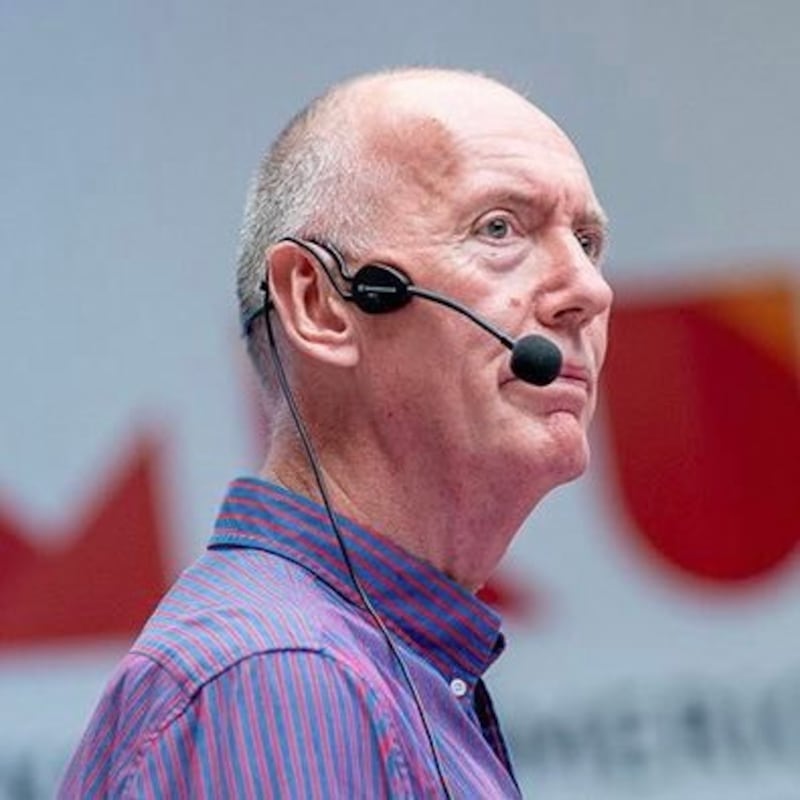Hundreds of companies linked to Chinese nationals have been registered in Northern Ireland as part of what one expert believes is widespread VAT fraud and tax avoidance.
Graham Barrow, one of the UK’s foremost fraud experts, also notes the surge in registrations correlates with Brexit and the north’s unique trading position under the NI Protocol and Windsor Framework.
Since the start of the year, multiple dozens of registrations were filed with Companies House to addresses in the north, some with entirely fictitious street numbers, others with real ones but where the individual living or working there is not connected to the company.

This surge over the last three weeks continues a trend that appears to have started about 18 months ago, said Mr Barrow, a former banker and co-host of “The Dark Money Files” podcast, which covers money laundering and financial crime.
“Over the last year there has been a massive increase, maybe ten times the year before,” said Mr Barrow.
Over the last three weeks, dozens of similar companies, all with Chinese nationals as directors and using addresses in the north that they have no apparent connection to, have been registered with Companies House.
Residents and business owners at the addresses in Belfast, Lisburn, Hillsborough, Portadown and Dungannon may end up receiving letters from HMRC questioning their links to the companies.
Ten companies with addresses on the Andersonstown Road were registered, but the street numbers do not exist.
Companies House is “aware of the misuse of the company register to support illicit activity”, the agency said.
“Where potential criminal activity is identified, Companies House works closely with law enforcement agencies to refer matters and support investigations,” a spokesperson said.
Mr Barrow has tracked online sales on Amazon to the companies, including ones registered in Northern Ireland. Those registered in recent weeks all have Chinese names, but previously Irish ones were used.
“It’s almost certainly not legal as they are likely trading without paying VAT or corporation tax,” he said.
Companies registered in the UK can more easily trade on sites like Amazon and can self-declare VAT. Those companies registered in the north likely charge customers VAT but do not pay it to the government, said Mr Barrow, adding they can also avoid paying corporation tax.
He has linked companies with addresses in the north to the sale of all types of goods, from electric goods to telescopic ladders to teeth whitening products.
While some of the companies list the directors as resident in England, Mr Barrow believes most are resident in China.
“The UK is an outlier when it comes to the ease in incorporating a company. You can go online, pay £12 and none of that is checked,” he added.
The fraud expert it is not clear why the north has become so popular but added: “The only correlation is the Brexit agreement.”
“I am not a lawyer so do not know how it works but it facilitates movement of goods and there is such a remarkable difference” following Brexit.
But the surge is also happening ahead of a new Economic Crime and Corporate Transparency Act coming into effect the next few months. They may be front loading before this happens, Mr Barrow said.
Mr Barrow said it took years for the government to move on the bill and it only acted with purpose after the Russian invasion of Ukraine heightened concerns about the UK’s role in international money laundering.

Business and Trade Minister Kevin Hollinrake told the BBC: “In the future every single director or officer, in fact anyone who files any documents on behalf of a company will have to verify their identity so we know exactly who they are.”
From March, Companies House “will have greater powers to query and remove fraudulent information and share information with law enforcement”, the spokesperson said, adding the agency has been allocated £63m to enforce.
“In the longer run, this will be supported by the introduction of compulsory identity verification checks for new and existing officers as well as those presenting on behalf of companies.
“These changes will enable us to crack down on the use of false addresses and other misuse of the register.”
The Irish News previously revealed another, different, type of registration in the north, where “ghost companies” are set up with no information available on who is running them or what they do.
Hundreds of companies are registered to a small rural home in Co Down, including more than 100 limited partnerships, many of which lead back to a single address in the Seychelles.



